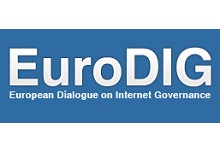Closing session: Future of the IGF
9 Jun 2018 02:00h
Event report
The moderator, Mr Thomas Schneider (Ambassador of the Swiss Government and Co-Chair of the 2017 IGF Multistakeholder Advisory Group (MAG)), opened the session with a set of questions about the prospective scenarios for the future of the IGF. The questions related to the role of the platform and whether it was still necessary, to the challenges of an adequate balance among stakeholders and high-level participation, and whether the forum should move towards a decision-making initiative with more concrete outcomes.
In response, the audience came up with suggestions. Participants highlighted that the Internet is not only vital for the ICT industry, but for many more stakeholders. The IGF community has to find a way to make both the industry and governments feel that it is important. Concentrating more on ‘hot’ topics could be an alternative in that sense. Attendants also argued that the IGF must be able to show concrete outputs, some form of consensus, or agreements supported by the community, even if not decisions, to convey a stronger general perception that the forum is relevant. One other comment stressed that the space has to be relevant to the business sector, and that if they get topics from these stakeholder group discussed, the chances that they will join and stay engaged are higher.
Mr Michael Rotert (Chairman, Association of the Internet Industry) stated that more commitment to the outcomes of the meeting from governments would foster a more solid future for the IGF. It would tell the audience that what is discussed has implications and is taken seriously.
Mr Gunther Grathwohl (Counsellor, German Ministry of Economic Affairs and Energy, IGF2019 Organising team) said that the German government believes in the IGF as a global infrastructure that provides wealth and innovation, and thus it should be kept free, open, and non-discriminatory, extending these effects to people around the globe. He also said that the German government remains very much open to any idea or measure that would make the meeting more relevant and engage more stakeholders. He said that the IGF needs a place where the multistakeholder view is in the DNA of its citizens, and that Berlin was one of the best places in the world to push that spirit forward.
Mr Raúl Echeberría (Vice President of Global Engagement, Internet Society) said that it is time for the IGF to move to the next level. He mentioned that the Internet Society is working with governments and other partners in implementing concrete initiatives in what they call ‘multistakeholder in action’, and that for this to happen it is necessary to demonstrate that the model works, producing tangible outcomes that are recognised as useful. As an example, Echeberría called for the sessions to be less generic, to target specific problems. He stressed that we should not be afraid of trying ways that make the meetings evolve, and make them more inclusive and diverse. He concluded by saying that the IGF must be able to show signs of improvement this year.
Ms Lynn St Amour (Chair, IGF Multistakeholder Advisory Committee (MAG)) started by saying that 80% of the MAG members are currently serving their first year, and that they are committed to making a difference and moving forward. She said that they added a step to the process this year – a call for issues – an idea from regional IGF processes. They want to use this to shape the agenda looking at inputs that are relevant to all stakeholder groups. St Amour stressed that they are working hard to build an agenda that is more focused, more cohesive, with fewer tracks and fewer redundancies, feeding one from the other, to ensure the MAG has a consistent review and builds a tighter sequence of workshops. She concluded by saying that we have to find ways to use the wealth of knowledge that comes out of these processes to advance concretely the issues that are more critical and to make initiatives more actionable, always listening to the community.
Related topics
Related event

